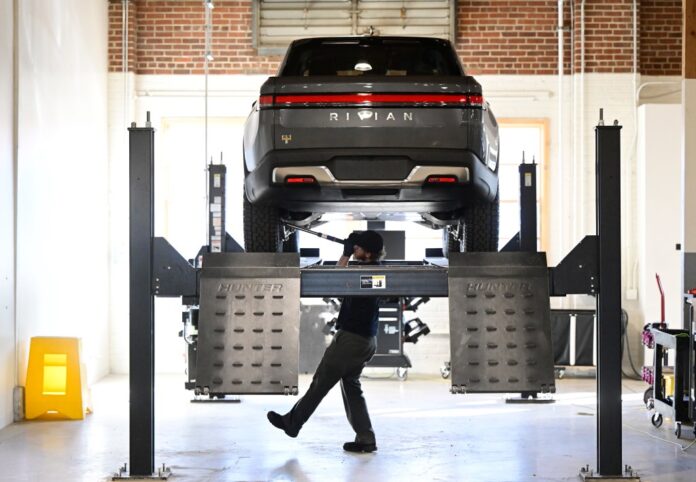
Nearly one in four new vehicles registered in Colorado this year is either battery-electric, hybrid-electric, or hybrid, according to data released by the Colorado Automobile Dealers Association.
Electric battery-powered vehicles accounted for 11.2% of all vehicle registrations in Colorado through Sept. 30 this year, up from 7.8% of the total in the same period of 2022. Hybrid vehicles accounted for a 9.2% market share, up from 7.3%. Plug-in hybrid vehicles remain a sliver of the market at 3.3%, up from 2.3%.
Combined that works out to nearly 36,500 vehicles or 23.7% of all registrations in the first nine months of the year. The momentum toward electric accelerated in the past three months. In the third quarter, electric vehicles accounted for 13% of all vehicle registrations in Colorado, up from 10.2% in the second, according to the Colorado Auto Outlook.
The Polis administration wants the state to have one million electric vehicles on the road by 2030. To help make that happen, the state provides a $5,000 tax credit, which can rise to $7,500 for qualified buyers of lower-cost electric vehicles. The state incentive comes on top of a federal tax credit of $7,500 on designated vehicles.
The state will provide another $6,000 in direct incentives to income-qualified buyers trading in a 12-year-old or older vehicle built or a vehicle that has failed an emissions test on a new electric vehicle. And some utilities provide other breaks, such as help with installing home charging gear.
The ability to find charging stations when taking longer trips remains a concern and a big push is underway to boost the state’s battery charging infrastructure. Given that most vehicle charging takes place in home garages, those living in apartments are also at a disadvantage.
The top-selling model among alternative engine types include the battery-powered Tesla Model Y, with 18% of the total in that category; the hybrid Toyota RAV4 with a 6.6% market share; the hybrid Honda CR-V with a 4.9% share; the Tesla Model 3 at 4.6% and the plug-in electric Jeep Wrangler at 3%.
Tesla dominates when it comes to battery-powered vehicle sales, while Toyota dominates among hybrid makers and Jeep dominates among plug-in hybrid. Ford and Hyundai have more balanced sales among both electric and hybrid.
Overall, new vehicle registrations were up 5.5% in the first nine months of the year, slightly lagging the 7% gain measured nationally, according to the Colorado Auto Outlook. For the third quarter, they are up 17.3%.
Sales gains reflect more abundant inventory at dealerships, which struggled with supply chain disruptions and computer chip shortages during the pandemic. And it is happening despite higher interest rates which have significantly boosted monthly payments.
Get more business news by signing up for our Economy Now newsletter.



